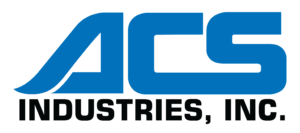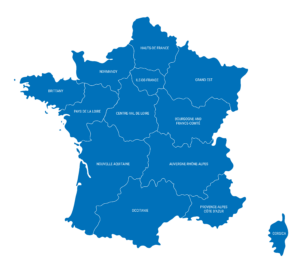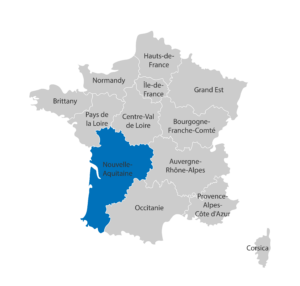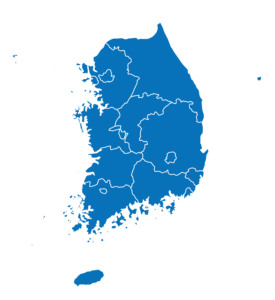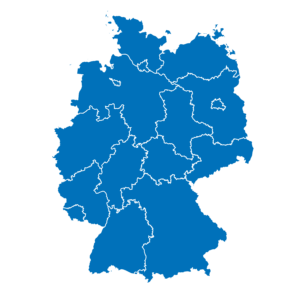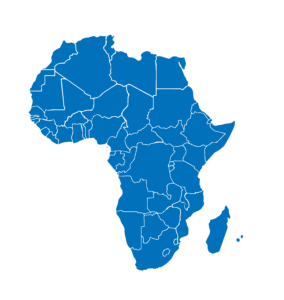Additional Naturally Occurring Hydrogen Discovered In France
Underground pockets of naturally occurring hydrogen were discovered in France’s Lorraine region in 2023. Additional reserves have now been located in the nearby Moselle area. These two deposits are estimated to contain around 92 million tons of white hydrogen, valued at approximately $92 billion.
French Companies Cleared to Explore for Natural Hydrogen
Two French companies have been granted exploration licenses to search for natural hydrogen deposits in south-western France. The companies plan to use non-intrusive and environmentally considerate testing methods to collect new gravimetric and seismic data. This new data, combined with existing geological and geophysical data, will be used to asses the areas natural hydrogen potential, informing targeted exploration.
Morocco Approves $32.5 Billion of Green Hydrogen Projects
The Moroccan government has approved six green hydrogen projects with a value of up to $32.5 billion. These projects are set to produce mainly ammonia, but also synthetic fuel, and green steel. Some scientists are viewing ammonia as a promising candidate to bridge the gap between our current fossil fuel reliance and the hydrogen future because it can serve as a fuel and a hydrogen carrier and there already exists some infrastructure for the production, transportation, and storage of ammonia, which has long been used in the agricultural and chemical industries.
Airbus Releases New Hydrogen Plane Design
“Airbus reconfirmed its commitment to bring to market a commercially viable hydrogen aircraft and presented some of the key technology building blocks that will enable the advent of a fully electric, fuel-cell powered commercial aircraft – a pathway which stands out as the most promising, following years of research into hydrogen aviation.” – Airbus, March 25th 2025
South Korea’s Ministry of Trade, Industry, and Energy Ease Regulations
South Korea’s Ministry of Trade, Industry and Energy approved 57 regulatory exceptions related to critical hydrogen technologies on March 31st. These exceptions are expected to significantly reduce the barriers that have been in place for companies operating in the hydrogen sector, and should give a boost to companies including Hyundai Rotem, and Doosan Energy.
BASF Commissions Germany’s Largest PEM Electrolyzer
BASF has commissioned Germany’s largest proton exchange membrane (PEM) electrolyzer at its Ludwigshafen site. The 54-MW facility, built in collaboration with Siemens Energy, is designed to produce up to 8,000 metric tons of zero-carbon hydrogen annually using renewable electricity. This hydrogen will serve as chemical feedstock for BASF’s main plant, supplying up to one metric ton per hour, and is expected to reduce greenhouse gas emissions by up to 72,000 metric tons per year.
First Green Hydrogen in Southern Africa
HyIron’s Oshivela plant in Namibia has achieved a significant milestone by producing Southern Africa’s first green hydrogen using a 12MW electrolyser. This development marks a crucial step toward the region’s green industrialization objectives. Previously, in September 2024, the Oshivela project was honored with the Hage Geingob Award for Namibian Hydrogen Project of the Year at the Global African Hydrogen Summit in Windhoek.
Bosch Secures 100MW in Pre-Orders for New PEM Electrolyser Stacks
Bosch has already secured 100MW in pre-orders for its Hybrion PEM electrolyser stacks, ahead of the official April launch, signaling strong demand for its hydrogen production components.
The company expects its hydrogen business to generate billions in revenue by 2030, pivoting toward PEM electrolysers while scaling back on fuel cell plans in the U.S. and dropping SOFC development due to weak policy support.
Enapter Has Developed the World’s First AI Enabled Electrolyzer
Enapter AG has developed AI software that enables its customers to optimize the performance of their AEM electrolyzers. Artificial Intelligence analyzes the data from the measuring sensors installed in the electrolyzer, which record temperature, pressure and power consumption at various points, for example. The AI control the devices in real time and intervene where necessary, enabling an improved energy flow and increasing the efficiency of the devices.
